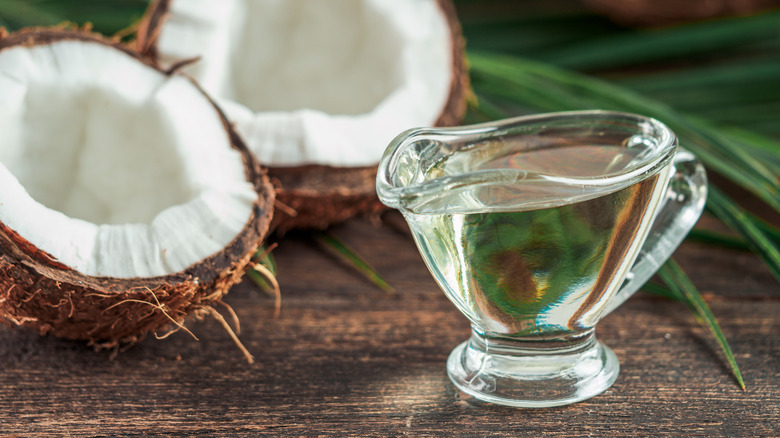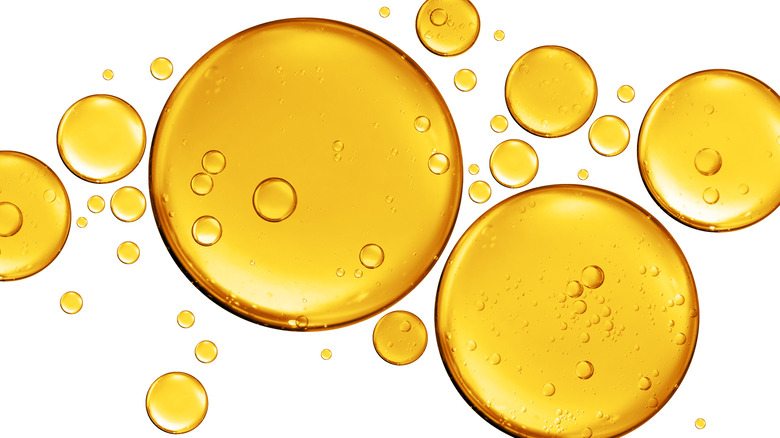Is It Safe To Drink Coconut Oil?
Coconut oil has been having a moment ever since Gwyneth Paltrow and Shaliene Woodley revealed back in 2014 that they use it to freshen their breath and brighten their teeth, practicing what is known as oil pulling (via US Weekly). Since then, it seems coconut oil has been even more present: in our foods, our drinks, and even our personal hygiene and skin care products.
Yet, coconut oil still remains a Keyser Soze of oils, leaving us to wonder: Is coconut oil "the devil himself in liquid form," as The New York Times once referred to it, due to its high saturated fat (you know, the kind that clogs arteries), or is as the Times-Herald Record touted it that same year — a dieter's savior, for coconut oil's ability to reduce fat?
Coconut oil definitely leaves us scratching our heads, wondering if it is safe to consume on a regular basis or not. According to WebMD, coconut oil, which is derived from the coconut, comes in two varieties: copra oil and virgin coconut oil, with the latter being more nutrient-rich. A single tablespoon has 117 calories and a whopping 14 grams of fat, 12 of which are saturated fat.
Still, even with all that fat, coconut oil is often lauded for its purported benefits, for your hair, skin, and even your metabolism when consumed. So, is coconut oil safe to drink or not? The answer is a bit more nuanced than "Yes" or "No."
Coconut oil guidance: no more than 2 tablespoons
Coconut oil may be safe to drink, but then again, it may not be. Healthline cautions that with 90% of coconut's fatty acids being saturated, more research is still needed to verify the impact coconut oil has on your overall health. Couple that with the American Heart Association's recommendation that only 6% of your fats consumed in a day should come from saturated fats, and you see the mysterious shroud coconut oil is wrapped in.
WebMD goes on further to explain that studies so far have been inconclusive and more research is needed. While some studies suggest coconut oil can lower bad cholesterol levels and increase the good cholesterol in your system, other research suggests the opposite. In fact, per the outlet, some studies have shown coconut oil can actually raise LDL cholesterol levels (this is the bad type of cholesterol). Translation: The jury is still out when it comes to coconut oil.
That said, Healthline reports you can safely consume coconut oil if done responsibly. If you want to explore the health benefits of coconut oil and add it to your tea or coffee or even use it in your baking, they recommend no more than 2 tablespoons of it during the course of a day.

